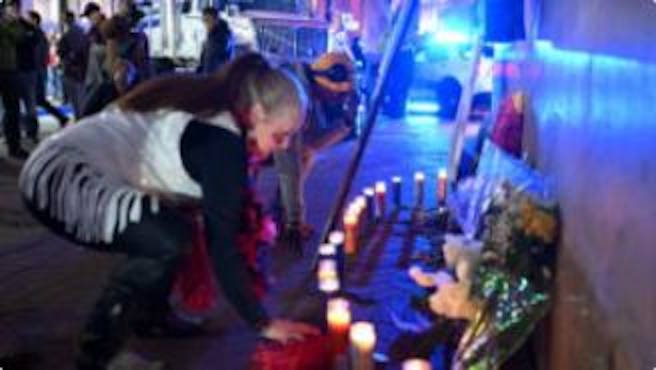
Fear of a Name: Why are the Media and Law Enforcement Afraid to Call Terror What It Is?
Refusing to name the problem doesn’t make it go away; it only increases fear of the thing itself.
By Naomi Risch
Shamsud-Din Jabbar posted videos declaring his support for ISIS and drove a pickup truck with an ISIS flag into a crowd in New Orleans. By so clearly associating his murderous rampage with a recognized terrorist group, Jabbar could not have intended more clearly for the incident to be a terrorist attack. In response, FBI assistant special agent in charge Althea Duncan said at a press conference, “This is not a terrorist event… simply improvised explosive devices.”
The Washington Post’s headline was, “Truck rams New Orleans crowd,” and only mentioned ISIS ties in the second subheading. NPR, NBC, and ABC all ran articles about the attack without using the words “terror,” “Islamic,” or “Islamism,” opting not to specify exactly what sort of “attack” it was.
Evidently, law enforcement, in addition to the press, is fearful of naming the problem. The FBI did later state in a press release that it was investigating the incident as a “terrorist attack,” but they should never have hesitated to call it such. Fear of calling terrorism what it is is extremely problematic in and of itself and draws a strong parallel to the Harry Potter series.
For most of the Harry Potter series, very few characters aside from Harry can bring themselves to even say the name of the most dangerous wizard of all time—Voldemort—not unlike the small number of politicians and law enforcement spokespeople who call radical Islam and terrorism what they are. Even Harry’s professors who teach defense and employees of the Ministry of Magic, the governing body in Harry’s world, generally can’t bring themselves to say Voldemort’s name, at least above a whisper. But as Harry’s friend Hermione so wisely puts it, “Fear of a name only increases fear of the thing itself.”
Far too few members of U.S. government bodies are willing to say the words “radical Islamic terror” or even “terrorism.” As Westerners live comfortable, Western lives, perhaps they are less afraid of terror attacks themselves than the backlash that may result from accusations of “Islamophobia.” Even Muslim leaders of Muslim-majority countries who took action against violent Islam were censured by Foreign Policy magazine as “the world’s most powerful Islamophobes,” indicating that nobody is safe from accusation.
In the final book of the Harry Potter series, Voldemort’s cronies begin to track anyone who says “Voldemort” out loud, rather than the common euphemisms for the evil wizard, either “You-Know-Who” or “He-Who-Must-Not-Be-Named.” It’s incredibly clever because his cronies know that the only people who say Voldemort’s name are those who are serious about taking him down. Were everyone willing to say his name, the system would be useless.
Everyone who opposes violence should contribute to making an equivalent system useless—if it existed for the phrase “radical Islamic terrorism” and similar phrases—by calling Islamic terrorism exactly what it is. Refusing to name the problem doesn’t make it go away; it only increases fear of the thing itself.
Certainly, a fear of causing offense should never be a reason to avoid working on a threat that literally costs human lives. Besides, there are nearly two billion Muslims and 50 Muslim-majority countries, making it all but impossible to find a group of people that’s less of an underdog.
If the New Orleans truck rammer were a white supremacist, no one would hesitate to call out white supremacy for what it is. But radical Islamic terror is the He-Who-Must-Not-Be-Named of the left and, in some cases, law enforcement. Like Voldemort for most of the Harry Potter series, he is only growing stronger. The least we can do is not have fear of the name and thereby mitigate fear of the thing itself.
From amgreatness.com